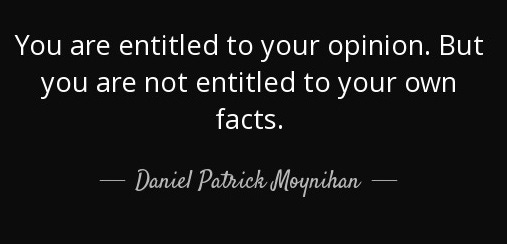Start Making Sense
Everyone loves when their pet project gets the attention of the mainstream press, but you may want to take a closer look before you smash the like and share buttons.
Today’s feature was supposed to be online poker-related, but a story (several stories, actually) caught my eye that I feel the need to address.
Don’t worry; I’ll get my poker article out next week, but I have a few thoughts about some of the recent sports betting headlines and stories (that lean negative) that are appearing with increasing frequency in the traditional press.
Mostly, I think these criticisms are valid or at least have shreds of validity underneath the hyperbole and fearmongering - very few are “hit pieces” in the true sense of the word.
That said, I get frustrated when these articles are uncritically shared (particularly by industry types) because they confirm a person’s priors. That really needs to stop.
If we want to make progress on the responsible and problem gambling fronts, we have to look at the problem critically, and with the nuance it deserves.
Show Me the Money Data
The first article I want to touch on is a survey conducted by Men’s Health that produced some eye-popping results - one part of a 7-article series in Men’s Health.
The first place you should start with any survey is the methodology:
“Men’s Health conducted this survey of 1,500 men in the U.S. who reported placing a sports bet within the past 12 months. The data collection period spanned from May 26 to June 5, 2023. To gather responses, the survey was distributed to 3,807 individuals using Momentive, Inc., San Mateo, California.”
You likely know Momentive by its former (and once again current) name, Survey Monkey. Survey Monkey isn’t a gold standard, but it's fairly reliable. But as I said recently, you can make data say whatever you want.
Sponsor’s Message - Jackpocket, America’s #1 lottery app, is proud to partner with Spectrum Gaming Group to release “The Future of Lottery Courier Services,” a report outlining consensus-driven best practices for the industry. Implementing these common-sense measures will help ensure transparency, accountability, and consumer protection, while continuing to sustainably grow the US lottery market without compromising its integrity.
Read the report here: https://blog.jackpocket.com/spectrum-gaming-report-on-the-future-of-lottery-courier-services/
An Easy to See Red Flag
The first data point that jumped off the page was this: 61% of bettors say they bet daily or weekly, and “4 in 5 say they spend up to 6 hours a day gambling.”
I have two issues with how this is presented:
What is the breakdown between daily and weekly bettors? There is a big difference between a person betting weekly and daily, and I’m confused why anyone would combine these two groups.
I have to assume the 4 in 5 number represents weekly bettors, which, as I pointed out in the first bullet point, is a cohort of undefined size.
These numbers seem alarming, but they might not be. Men’s Health identified 1,500 bettors, with 61% being in the daily or weekly category, or about 915 of the 3,800 people surveyed. If 10% of those bettors bet daily, that works out to about 90 people. And if 80% (4 in 5) spend 6+ hours per day betting, that’s about 70-75 people, which is about 2% of the people surveyed. That number lines up with typical problem gambling estimates, and I’m not including the small but not insignificant number of professional bettors who spend their days researching bets.
Granted, I don’t know the breakdown between daily and weekly bettors; the actual percentage could be higher or lower. The point is that those numbers don’t tell us much of anything and probably indicate a PG rate very close to what would be expected, somewhere in the 1%-5% range.
An Even Bigger Red Flag
As much as I dislike incomplete data, this next part highlights my main quibble with the survey:
Keep reading with a 7-day free trial
Subscribe to Straight to the Point to keep reading this post and get 7 days of free access to the full post archives.




